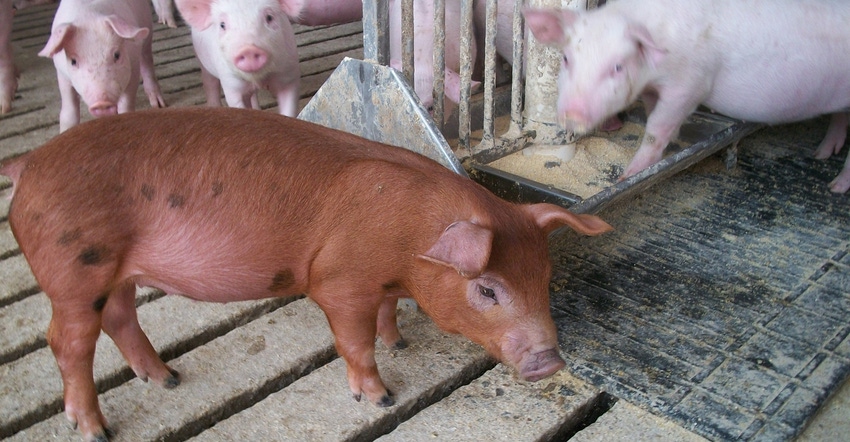
State and national sources are alerting pork producers about what they can do to keep their herds safe in light of USDA’s recent announcement that African swine fever (ASF) was confirmed in the Dominican Republic.
On July 28, USDA’s Foreign Animal Disease Diagnostic Laboratory confirmed ASF in samples collected from pigs in the Dominican Republic through an existing cooperative surveillance program.
The University of Minnesota Extension, along with the U-M College of Veterinary Medicine, are providing updates as the situation evolves. An online link to the University of Minnesota Swine Extension blog ASF confirmed in the Dominican Republic: Resources for Minnesota swine producers (umn.edu) discusses biosecurity measures suggested by the Minnesota Board of Animal Health and what the federal government is doing to reduce the risk of introducing ASF into the U.S.
Additional resources are offers in these fact sheets:
ASF is a highly contagious disease of swine with the potential to infect domesticated hogs, according to MBAH. The disease is endemic in some regions across the globe, and it is found in areas of Asia, Europe, Russia, China and Vietnam. There are no treatments or vaccines available. Control and eradication of the disease is based on identification of infected animals through surveillance, removal of infected herds and preventing exposure of additional herds.
ASF does not affect human health and cannot be transmitted from pigs to humans.
MBAH, federal agencies and industry partners are preparing for the potential introduction of ASF in the U.S. The USDA Animal and Plant Health Inspection Service has set the following safeguards in place to reduce the risk of introduction into the U.S:
• import restrictions on pork and pork products
• increased vigilance from U.S. Customs and Border Protection staff at ports of entry, paying particular attention to passengers and products arriving from China
• increased collaboration with states that allow garbage feeding, to ensure the swine industry follows best practices and encourages testing of sick pigs in these garbage feeders to include ASF
• increased messaging to industry partners to raise awareness of the direct biosecurity concerns with foreign visitors to domestic swine operations
How to protect your pigs
The National Pork Board also offered information, listing five tips to protect your pigs from ASF:
1. Monitor your pigs for signs of ASF. Signs and symptoms include: High fever; decreased appetite and weakness; red, blotchy skin or skin lesions; diarrhea and vomiting; coughing and difficulty breathing. Foreign animal disease barn posters and fact sheets are available in English or Spanish at no cost to producers on the from the NPB Pork Store.
2. Report signs of a foreign animal disease on your farm. Immediately report animals with any sign of an FAD, including ASF, to your herd veterinarian or to your state or federal animal health officials. Timeliness is essential for early detection and prevention of ASF.
3. Participate in your state’s Secure Pork Supply program. Secure Pork Supply provides a workable business continuity plan for sites under movement restriction, but not infected with an FAD, such as ASF. View the Minnesota SPS checklist on the MBAH website at Secure Pork Supply Plan Checklist | Minnesota Board of Animal Health (state.mn.us).
4. Enhance on-farm biosecurity practices. Producers should step up their biosecurity measures by working with their veterinarian. This is especially important since the ASF virus can easily travel on shoes and clothing.
5. Create an AgView account. AgView is the pork industry’s free, opt-in technology from NPB, which promotes business continuity by making disease traceback and pig movement data available to the USDA and state animal health officials on Day 1 of an FAD outbreak.
Testing available
The University of Minnesota Veterinary Diagnostic Laboratory is approved to test for ASF. MBAH supports the VDL in its efforts to better prepare for this disease, which include expanding the types of samples which may be used for diagnosis.
Questions? Contact MBAH at 651-296-2942 or [email protected].
About the Author(s)
You May Also Like






